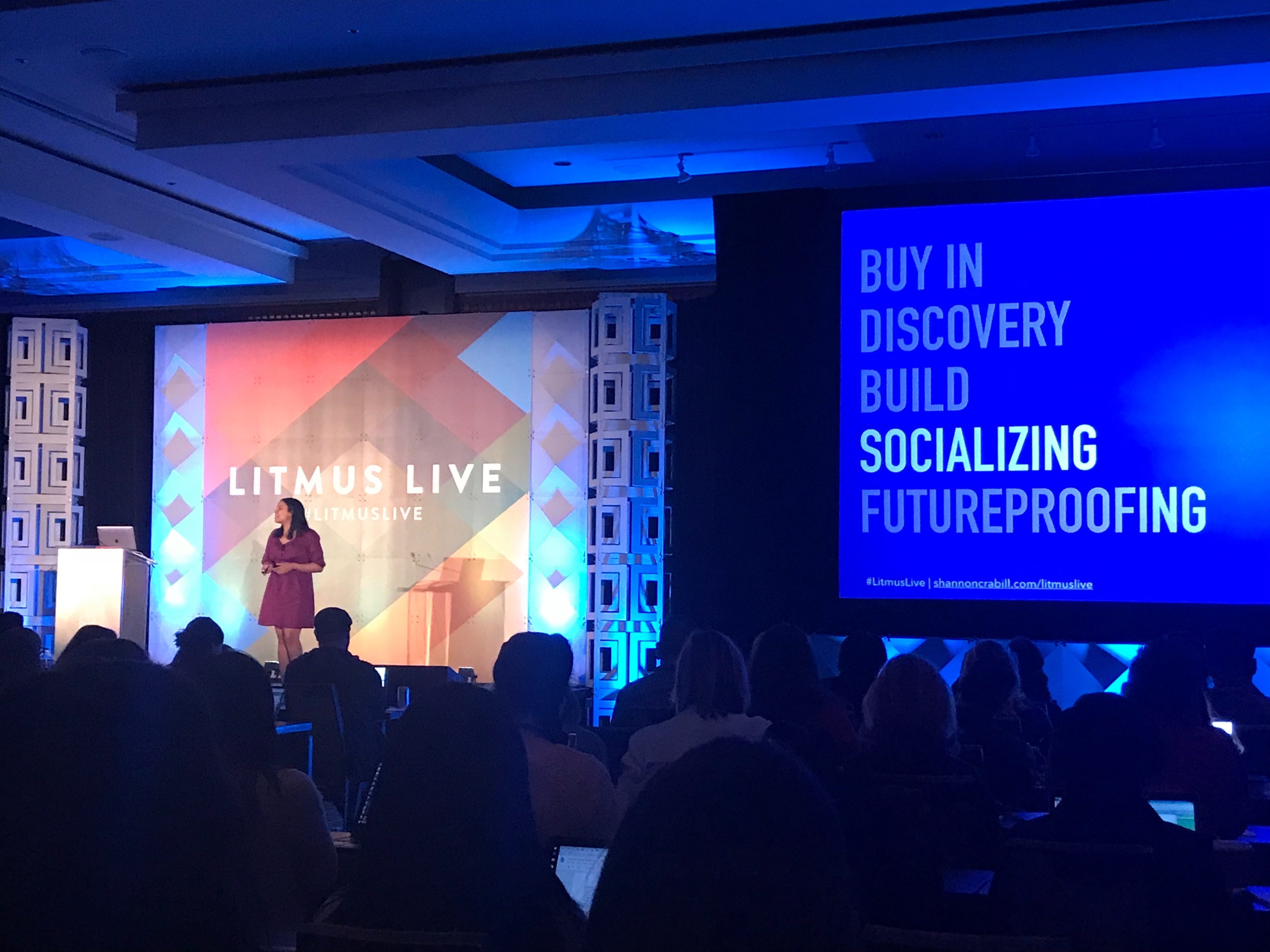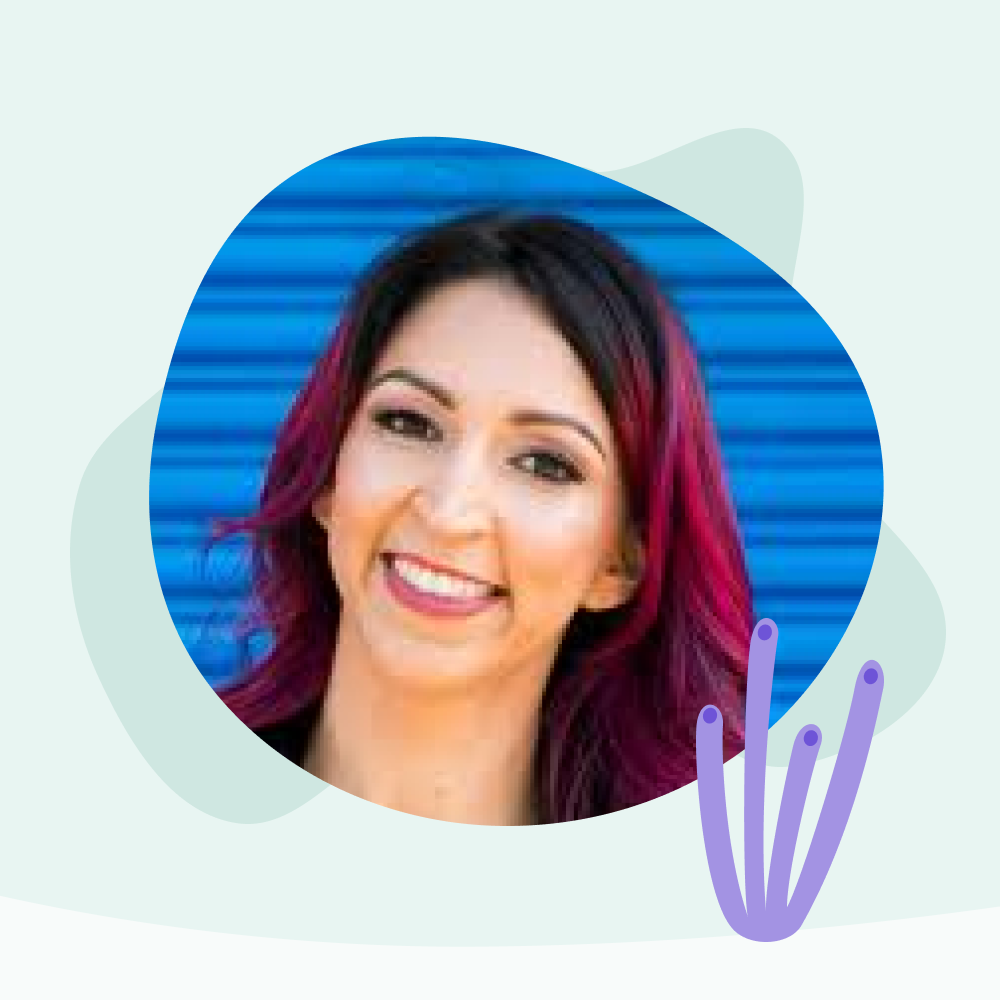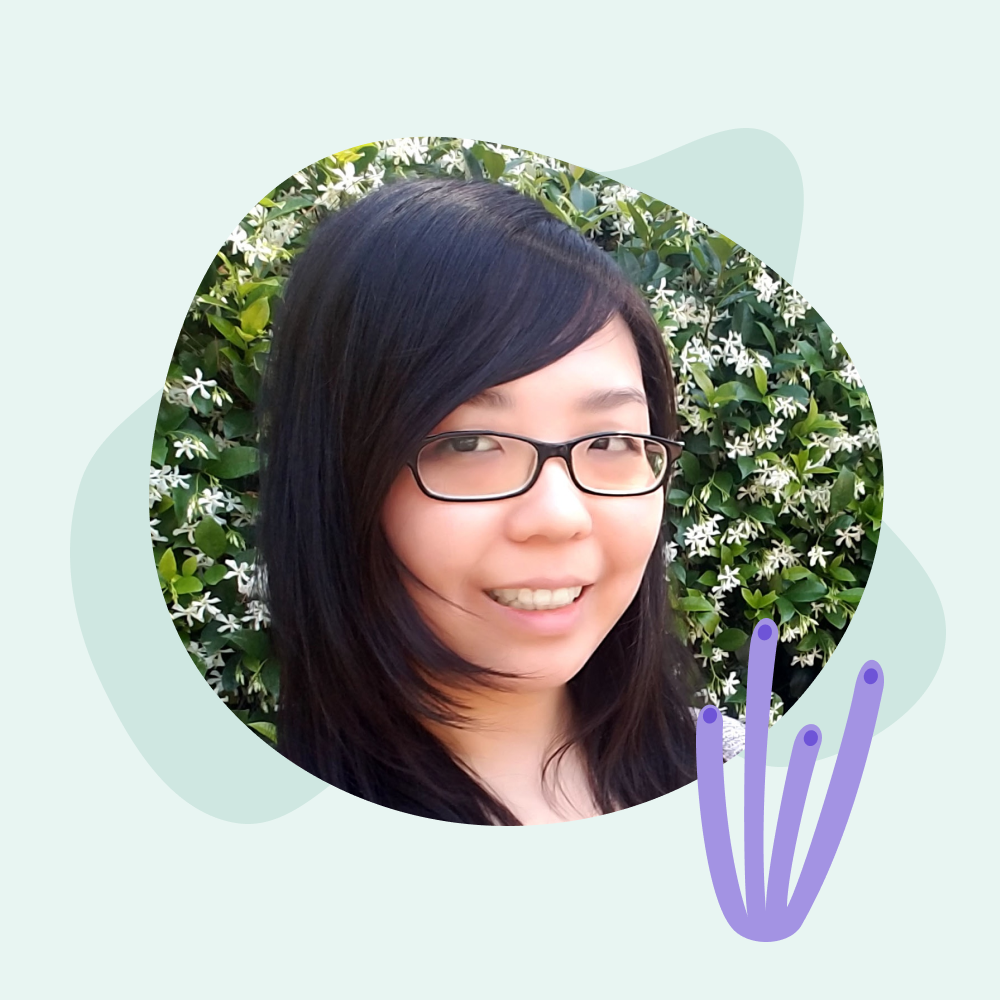For International Women’s Day 2020, we kicked off a series of interviews with some of the most esteemed women in the email marketing industry. These women jumped on Zoom calls and played email ping pong with me to discuss gender equality at industry conferences events.
And as some of these women’s varied expertise became apparent, the series grew to include women working in more technical fields within email – chiefly email design and development. It’s yet another area within the email industry where gender representation is noticeably imbalanced.
But blazing the trail for women wanting to break into coding and email development is Shannon Crabill. She’s been working in HTML email design for over a decade and has been appearing on stage at industry conferences since 2016.
I caught up with her to find out more about what attracted her to coding and what more can be done to inspire more women to join this field.
How did you get into coding and email development?
I learned to code to stay competitive after graduating with a degree in graphic design. Websites were more in demand than design work, so I started to learn HTML & CSS on my own. I had a few short term web design projects before getting my first full-time job as an email designer and developer. I’ve been an email developer ever since.
What do you most enjoy about this work?
Email development has a blend of design and technical challenges that I enjoy. I can use the creative part of my brain to translate a design into an email that will look good across the devices. And the technical side to debug a rendering issue.
Why do you think there are so few women working in these technical fields of marketing?
Tech can be a discouraging field to be in. In addition to that, women may not be encouraged or supported in following tech as a career path, if that is something they are interested in. Personally, I did not realize that tech or development or marketing was an option when I was thinking about college and my future.
What challenges have you faced as a non-white woman working in the technical fields of email marketing?
Overall, I have not had too many challenges in the field. But, there was a time, where I felt like I was treated differently than my peers. I had moments where I’ve been talked down to by a peer as opposed to being talked to as an equal. I felt like my ideas and technical suggestions were not taken as seriously as ones by my white colleagues (both men and women of lower seniority).
I’ve found it difficult to progress my career, due to unclear feedback (“you’re abrupt” and “you need to lead/speak up more”) and being unsupported in wanting to pursue stretch assigns that seemed to come much easier for my peers that did not look like me. Luckily, at this point in my career, I know my worth. I know the red flags and will not tolerate an organisation that enables similar behaviour.

Why do you think women of different ethnicities are underrepresented in these fields?
Tech and marketing are tough fields to be in. It’s competitive. It can be difficult. Most c-suite members seem to be men, so they hire other people that are like them, which means other men, maybe with similar backgrounds, maybe not.
It’s a very human thing to surround yourself with similar people, so I’m not faulting anyone specifically. But it does make it hard for women, people with diverse backgrounds etc, to get to a foot in the door (let alone promoted) – unless we’re truly wanted and effort is put into finding, hiring and supporting people with different backgrounds.
What can be done to improve the balance of representation?
Diverse hiring practices. And this doesn’t mean, “oh, we need to interview a person of colour and/or a woman to meet a quota” and that’s it. Are they considering candidates with alternative backgrounds for positions? Are job descriptions written in a way to attract diverse candidates? For example, avoiding “bro” language, or requiring advanced degrees for technical or marketing roles, only hiring in tech hubs, etc.
There was an article about Amazon’s candidate rating AI that was biased against women for technical roles. The issue was found and the AI was scrapped, but I have to wonder if companies are doing all they can to be inclusive of candidates from different backgrounds.
Another thing I think would help with better representation is internal training for hiring managers and people managers. If a diverse candidate is hired, great. What are you as a company, as a leader, as a manager doing to help them succeed? What non-bias information is in place (or required) for your managers?
How has the past year and the pandemic affected gender equality in MarTech?
I’ve noticed somewhat of a change in the past year. Personally, I am more vocal in public and private forums about the lack of diversity in marketing, tech, MarTech, etc. Overall, everyone seems more vocal and it’s comforting (in a way) to know that I am not alone in the way I feel. At the same time, there are bigger issues going on, so it’s a balance for sure.
While I don’t have firsthand experience to back this up, I have heard/seen a few articles around that more women might be not working now due to the pandemic, what with schools being closed, caring for family, etc. At the same time, I’ve seen a fair amount of people, men, and women, changing roles in the industry, despite the pandemic.
What advice would you give other women interested in joining these fields?
My advice would be to not be afraid to reach out to others in the email community. The email community is one of the most supportive I’ve interacted with, especially Women of Email and the Email Geeks Slack group. You may think that everything has already been said, but that’s not the case. If you want to write on a topic, apply for that role – go for it! Self-selecting will not help you to grow in this field.
This year’s IWD theme is #ChooseToChallenge – how do you think women wanting to break into technical roles in marketing can challenge the status quo?
I will say asking a lot of questions and trying to add value is a good way to get into technical roles. I’ve done a lot of learning at work, on the job, and in my own time to try and make things better, more efficient, which seems to go over well.
I will also say that being detailed and prioritising accuracy and quality can go a long way. We are human and mistakes happen, but putting in the work to help prevent that from happening can be a valued skill.
View Shannon’s software development projects at www.shannoncrabill.com or follow her on Twitter.


No Comments
Leave a comment Cancel